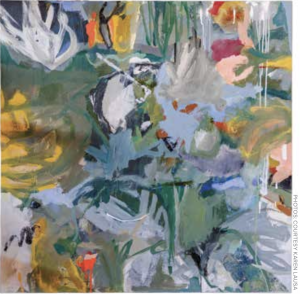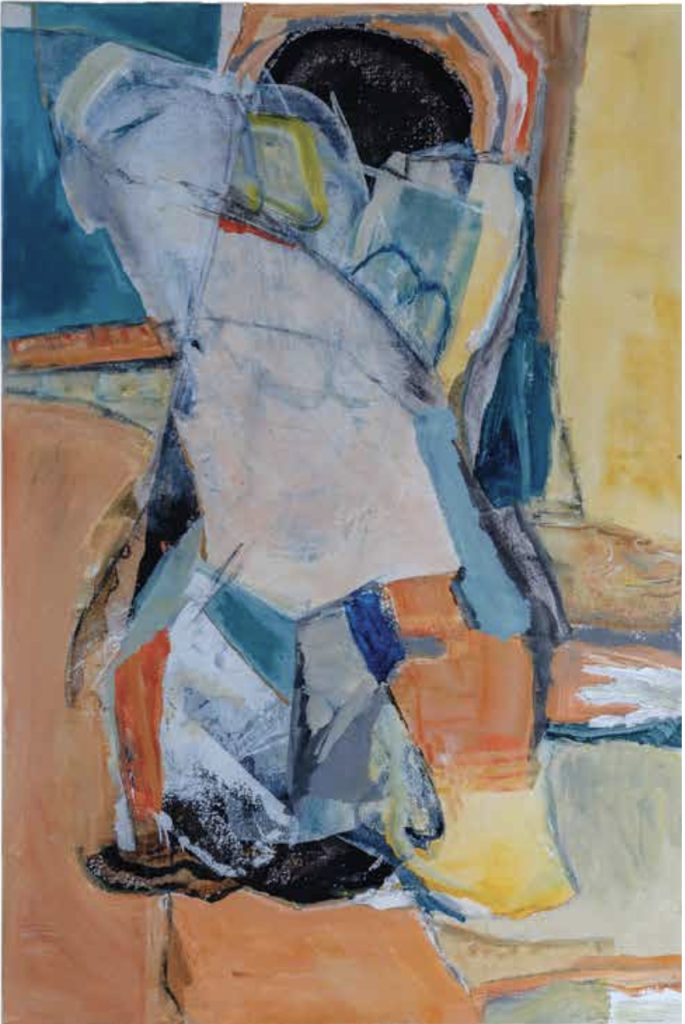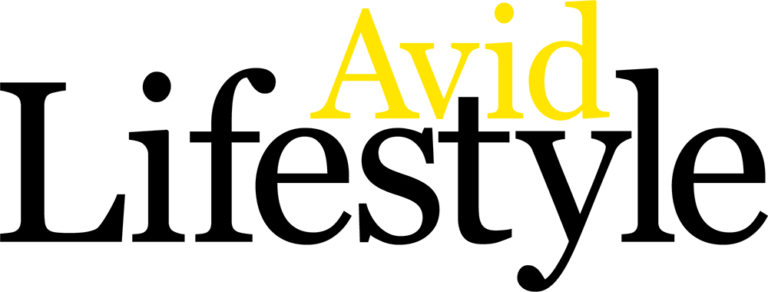KAREN LAUSA’S abstract paintings reveal personal experiences and ancestry
By Kastle Waserman
STRONG LINES and shapes and a moody color palette are distinct qualities of Karen Lausa’s abstract paintings. For her, those lines reflect boundaries and confinement, a reflection of her ancestry and what she observed while leading a book discussion group within the Colorado prison system.

“I created the group after 25 years as a reference librarian where I grew bored and uninspired,” Lausa recalls. “I was always very interested in social justice, and I wanted to reach out to juveniles sentenced to life without the possibility of parole. That was my passion and the love of my life. It gave them something to hold onto, and it gave me so much meaning in return.”
The program was abruptly shut down in 2020, leaving Lausa in a state of loss. “Suddenly, I had nothing to do. I didn’t know who I was anymore because my work was a form of validation.”
She did the requisite feeling sorry for herself and a lot of yoga until one day, she spotted some art materials that her daughter had abandoned. “I picked them up and started painting, and I never stopped.”
First, she did a series of portraits inspired by the war in Ukraine. “I was just imagining the faces of these people sheltering in train stations, and it really tapped that social justice part of me.”
Lausa then began a series of online art courses at Art2Life and switched to abstract work. Using a muted color palette of neutrals with splashes of bold magenta, black or rich blues, her paintings often convey boundaries, some with the spiral-like reminders of barbed wire. Other pieces have elements of collage, such as paper with printed words. Many are made from found canvas materials, such as shipping or deli paper. “I will use anything that appeals to me,” she says.
As Lausa’s paintings began to show blocked shapes and hard lines, she realized they were a reflection of the confinement she had witnessed in the prison system and also conjured up the fact that she comes from a family of Holocaust survivors.
Her great-uncle, Lion Feuchtwanger, was a writer who penned the book “The Oppermanns” about the day-to-day lives of a Jewish family living in Germany in 1933 as democracy was crushed at the hands of the Nazis.

“Growing up, I knew the Nazis had persecuted my great uncle during World War II. I knew stories from family anecdotes, but it wasn’t until I was older that I realized what they all meant. The fact that there’s a connection to art and literature makes me incredibly proud of what I’ve inherited.”
Lausa says that she sometimes feels intimidated by the art world and by people who have more experience and Master of Fine Arts degrees. Even at her recent show at Rogala Design, she worried that people were judging her for not having an extensive art background, despite being “always studying” and taking ongoing classes. “I’m learning to believe in my work and find confidence in what I’m doing. I’m just thankful I found it,” she says.
As she enters her 70s, Lausa says she doesn’t have time to wait and hone her skills. “I just have to jump in and paint for as long as I can.” She’s taking full advantage of every opportunity. She was recently selected for a residency through the Jen Tough Gallery in Santa Fe, New Mexico, where she’ll paint in the solitude and peace of the piñons, junipers and vast desert spaces, she says. The gallery will exhibit her work in 2026.
Find Karen Lausa’s work on her Instagram: @subjecttochangeart


